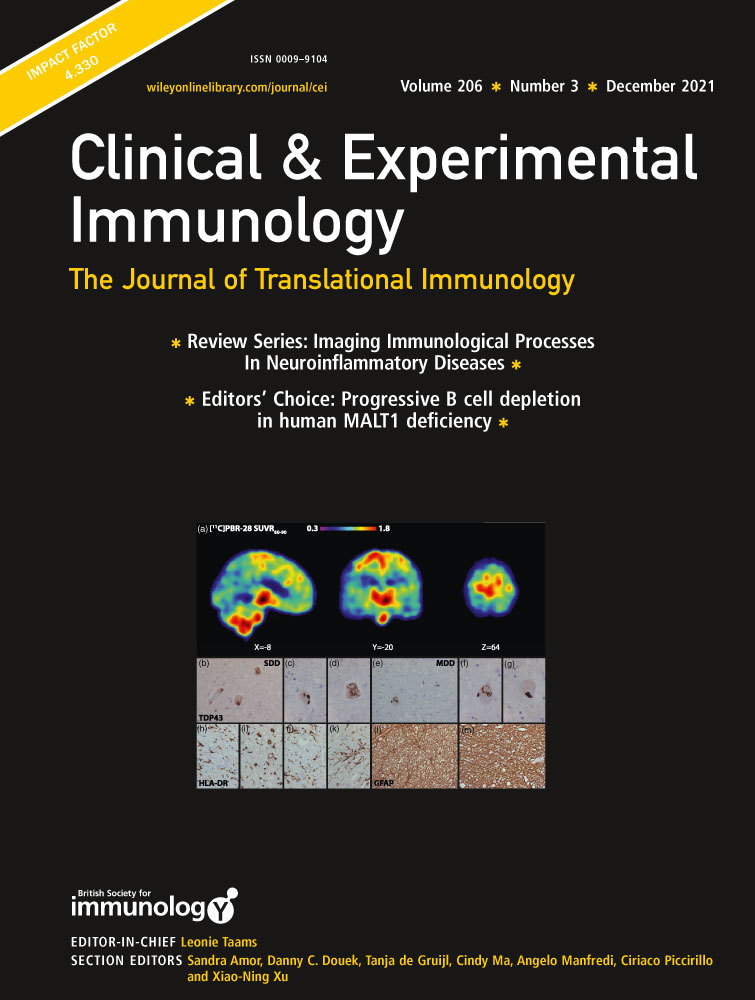Helicobacter pylori induces lymphocyte activation in peripheral blood cultures
SUMMARY
Helicobacter pylori-induced, in vitro stimulation of mononuclear cells was characterized by measuring DNA synthesis response, interferon-gamma (IFN-γ) secretion and the number of immunoglobulin-secreting cells. The strength of these responses was measured in 51 subjects comprising 36 dyspeptic patients from the Gastroenterological Unit and 15 members of the laboratory staff. Nineteen subjects had antibodies to H. pylori and 32 did not. The responses were compared with respect to H. pylori antibody status. Positive stimulation of DNA synthesis (stimulation index > 2) was obtained in 96% of the subjects, and the bacterium induced IFN-γ secretion in all of them. The induction of immunoglobulin-secreting cells revealed B cell in vitro stimulation. The antibody-positive subjects had a tendency to synthesize less DNA (P not significant) and secrete less IFN-γ (P < 0.05) in response to H. pylori than did the antibody-negative ones, but the differences were not marked. The results show that the whole H. pylori bacterium stimulates mononuclear cells. The nature of the stimulation is not yet characterized (non-specific versus specific).




